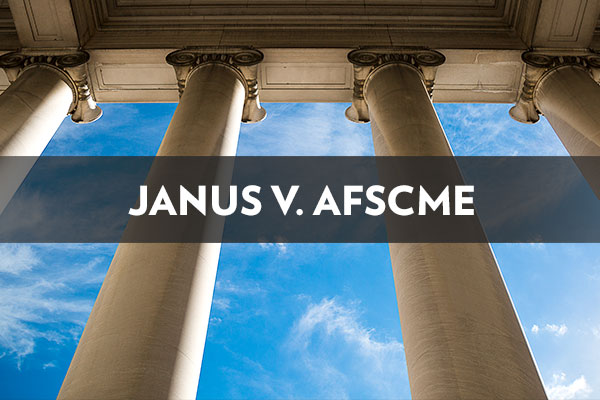Commentary

Government Workers’ Rights Restored
What if you could be fired from your job for refusing to give part of your paycheck to a private, political organization?
It sounds far-fetched. After all, this is America, where the Constitution protects our rights of free speech and free association. But for decades, government workers in Pennsylvania and 21 other states have faced an unjust workplace ultimatum: Pay a union, or lose your job.
Even government workers who choose not to join the union still must pay up, and even if they disagree with how unions spend their money.
Thankfully, the U.S. Supreme Court has righted this decades-old wrong. In Janus v. AFSCME, the court struck down this coercive system, clearing a pathway for 330,000 Pennsylvania government workers to regain their long-denied First Amendment rights.
Mark Janus, an Illinois government worker and lead plaintiff in the case, argued that collective bargaining—or union contract negotiations with politicians and government agencies—is fundamentally political. Directing more taxpayer dollars to pensions or other benefits means fewer dollars to fund public services—such as road construction or public safety measures. That is, unless lawmakers hike taxes to make up the difference.
Janus said—and the court agreed—that such choices are, by definition, political. And forcing government workers to support a union’s political activities violates workers’ constitutional rights.
Teachers, public safety officers, and other government workers could soon be able to choose whether to pay a union without the fear of fines or firing.
This is a pivotal victory for public-sector workers across Pennsylvania. Teachers, public safety officers, and other government workers could soon be able to choose whether to pay a union without the fear of fines or firing.
But the Janus ruling isn’t self-enforcing. Another legal step must be taken to apply the court’s decision in Pennsylvania.
Greg Hartnett teaches art in Indiana County’s Homer-Center School District, and for nearly two decades, the teachers’ union has taken thousands of dollars from his paycheck to fund activities he views as harmful to teachers, students, and his community. For example, the union demanded more costly contracts at the price of higher local taxes. When Hartnett disagreed, union leaders ignored him—but continued taking his money.
Like Mark Janus, Harnett believes he should not forfeit his rights to do the job he loves. “My constitutional rights do not end when I set foot in the classroom,” he says.
That’s why he and three fellow public schoolteachers filed a lawsuit last year against the Pennsylvania State Education Association, the state’s largest teachers’ union. While the court’s decision in Janus gives government workers grounds to assert their First Amendment rights, Hartnett’s case could be the vehicle that enforces the decision in the Keystone State.
After Pennsylvania’s justice system applies the Janus precedent, workers will still need to be informed of their restored rights and how to act on them.
Former teacher Keith Williams knows government union leaders will do everything they can to keep workers in the dark about their options. Williams recently stepped away from his teaching career in Conewago Valley School District in Adams County to join the nonprofit group Americans for Fair Treatment as director of outreach. His goal: Ensure government workers can exercise their post-Janus rights.
“I left my teaching career behind to ensure that government workers are educated about their rights, equipped to speak out about the choices they make, and empowered to overcome obstacles standing between them and the freedoms most Americans take for granted,” Williams says.
Williams knows that unionized workers value their rights just as much as anyone. In a 2015 nationwide survey of union members, 76 percent agreed that employees should have the right to decide, without force or penalty, whether to join or leave a labor union.
As far as the impact of the Janus ruling on government unions themselves, most states already recognize workers’ rights to pay or not pay a union—and unions still operate in those states. The truth is, unions will represent workers more fairly when workers can vote with their wallets—voluntarily—on union priorities.
Coercion has no place in Pennsylvania’s workplace. The Supreme Court’s Janus ruling heralds a transformation in working conditions for public employees, but it’s just the beginning of the fight to ensure all workers in the commonwealth can exercise their First Amendment rights.
# # #
Charles Mitchell is president and CEO of the Commonwealth Foundation (CommonwealthFoundation.org), Pennsylvania’s free-market think tank.